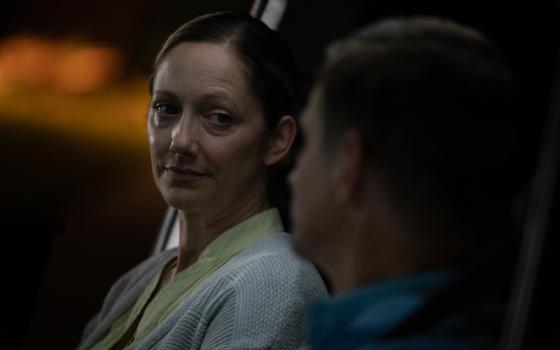
(Pixabay/Creative Commons/Mohamed Hassan)
On Tuesday (April 8), members of Congress introduced a rare bipartisan piece of immigration reform legislation aimed at clearing a backlog in visas for religious workers. The Religious Workforce Protection Act has substantial support from a variety of religious leaders, including Catholics, evangelical Christians, Muslims, Hindus, Jews and Episcopalians.
"We would not be able to serve our diverse flocks, which reflect the rich tapestry of our society overall, without the faithful men and women who come to serve through the Religious Worker Visa Program," Archbishop Timothy Broglio, president of the U.S. Conference of Catholic Bishops, and Bishop Mark Seitz, the USCCB migration committee chair, wrote to Congress on Thursday in support of the bill.
"Simply put, an increasing number of American families will be unable to practice the basic tenets of their faith if this situation is not addressed soon," wrote Broglio, of the Archdiocese for the Military Services, and Seitz, of El Paso, Texas.
Typically, foreign religious workers and clergy come to the U.S. with an R-1 visa, which permits them to stay for up to five years. After that, they can apply for an EB-4 visa, which leads to a green card and legal permanent residency.
But the EB-4 visa category has an annual cap and is shared by other types of immigrants, leading to an average wait time of 15 years for approval, according to the USCCB.
After five years on an R-1 visa if they do not have an EB-4 visa lined up, religious workers have been forced to leave the U.S. But new legislation co-sponsored by Sens. Tim Kaine, D-Va.; Susan Collins, R-Maine; and Jim Risch, R-Idaho; and Reps. Mike Carey, R-Ohio, and Richard Neal, D-Mass., would allow the Department of Homeland Security secretary to extend the R-1 visa for religious workers as they wait for a decision about their green cards.
The legislation also allows for limited job flexibility within the religious field as workers wait for a decision on their EB-4 applications, allowing a worker to be reassigned to another congregation without having to restart the process. It also removes a requirement that religious workers return to their home countries for a year after their five years on an R-1 visa ends.
Explaining the importance of foreign priests, sisters and brothers, Broglio and Seitz wrote: "Some parishes, especially those in rural or isolated areas, would go without regular access to the sacraments, if not for these religious workers. Additionally, dioceses with large immigrant populations rely on foreign-born religious workers for their linguistic and cultural expertise."
All five congressional co-sponsors of the bill are Catholic. "When Maine parishes where I attend mass started losing their priests, I saw this issue creating a real crisis in our state," said Collins in a statement, stating a sentiment shared by other co-sponsors.
Advertisement
Kaine's bishop, Barry Knestout of Richmond, Virginia, wrote: "While deeply valued and impactful, relationships between parishioners and clergy take time to build. The loss of a trusted clergy member due to impractical immigration-related restrictions, compounded by significant visa backlogs, deeply impact our parishioners' free exercise of religious life."
The bill has received support from a broad variety of religious groups, including the Episcopal Church's Presiding Bishop Sean Rowe, who wrote, "Religious worker visas are a vital lifeline for our congregations, allowing dedicated clergy who bring diverse perspectives and talents to serve God's people."
Samir Kalra, managing director of policy and programs for the Hindu American Foundation, also noted the importance of foreign religious workers in a statement supporting the legislation, writing that the bill "will help all religious communities, including Hindu Americans who are dependent on bringing religious workers trained in India to play a variety of essential roles at Hindu temples."
The National Association of Evangelicals, the U.S. Council of Muslim Organizations and the Immigration Committee of Agudath Israel of America also released statements in support.
Reporting from immigration news outlet Migrant Insider indicates that Republican support for the bill may be broader than the bill's sponsors. North Dakota Sens. John Hoeven and Kevin Cramer both expressed support for similar legislation, and Missouri Sen. Josh Hawley wrote to Secretary of State Marco Rubio about the issue.
David Spicer, assistant director of policy, migration and refugee services at the USCCB, told RNS in an April 3 interview before the bill was introduced that "there is an opportunity to find common ground" on immigration on foreign religious workers, even as the Catholic Church has faced criticism on its immigration work from some Republicans, including Vice President JD Vance.
" The religious worker visas provide a glimmer of hope for those that may feel that there's no good opportunity for bipartisan collaboration," said Spicer.




